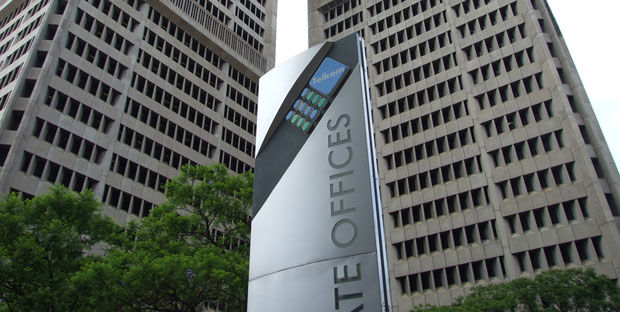
The number of fixed lines in service in South Africa continues to tumble, falling to levels last seen at the advent of democracy in South Africa almost 20 years ago.
The figure has fallen to just 3,8m after slumping through 4m a year ago, Telkom revealed in its annual results, published on Friday morning. The number of lines in service has declined by about 5% year-on-year. South Africa’s fixed-line penetration rate has fallen by 5,2% to 7,3% from 7,7% a year ago.
The number of broadband digital subscriber lines in service, meanwhile, has shown only pedestrian growth, increasing by 5,2% between March 2012 and March 2013 to 870 000.
The biggest decline in fixed-line users was in the prepaid segment, with a fall of 16,2%. Telkom also slashed the number of payphones in operation to 95 000, a decline of 10,4%.
Of particular concern to Telkom management must be that the number of fixed access lines per employee declined sharply compared to 2012, falling by 6,1% from 191 to 179.
Fixed-line voice revenue decreased by 9,6% to R8,6bn due to continued substitution to mobile, a decrease in voice minutes and the a further reduction in fixed-line interconnection fees.
Fixed-line subscription revenue increased by 1,3% to R7,7bn, helped by an increase in residential and prepaid line-rental tariffs.
The mobile network, branded Telkom Mobile/8ta, must also be a big worry. Active mobile subscribers increased by just 3,4%, from 1,48m to 1,53m, despite a 36,8% increase in total mobile subscribers, suggesting high customer churn levels.
The number of Telkom Mobile contract subscribers fell by 15,3% to 376 000; prepaid rose by 11,4% to 1,16m. Average revenue per user was R61,47, well below rival operators, and fell by 17,1% over 2012.
Telkom said the decrease in postpaid customers was the result of a clean-up of debtors and an improvement to credit vetting systems.
On the positive side, mobile data revenue increased by 123,3% due to an increase in the number of data subscribers and the data deals and promotional products launched during the year. Telkom Mobile’s share of all mobile operators’ year-on-year data revenue growth was 8,6%, it said.
The mobile network now has 1 985 base stations, up 47,3% from a year ago. A third of these sites supported next-generation 4G/LTE.
As Telkom struggles to fend off fixed-mobile substitution, some good news is that it appears to be making rapid progress with the roll-out of its high-speed VDSL broadband network. At the end of March, it had 73 400 ports connected via its new multi-service access nodes (MSANs), which provide access to higher speeds for consumers, by the end of March. The number of MSANs in service stood at 90, 83 of which were installed in the access network (in the streets) and seven in Telkom exchanges.
For the full-year, Telkom reported a decline in operating revenue of 1,7% to R32,5bn. Operating expenses, excluding a R12bn impairment of its legacy network announced earlier this week, was R32bn. Headline earnings per share slumped by 73,2% to 87c, but free cash flow rose by 18,6% to R2,1bn and group net debt fell by 46% to R2,1bn.
No dividend was declared. — (c) 2013 NewsCentral Media




